Steemit Learning Challenge-S22W3; Trigger Finger
If you don't call it trigger finger, you can call it tenosynovitis, or, medically, you can call it in its complete form as stenosing tenosynovitis. Before defining it, let's briefly talk about it based on these terms.
Stenosing: The tendon sheath is that thin, fibrous tube that lubricates the tendon that connects bones and muscles, and whenever this sheath has a constriction or in any way it becomes narrow, disallowing flexibility of the affected areas, we say that part is stenosing.
Tenosynovitis simply means an inflammation that occurs in the tendon sheath.
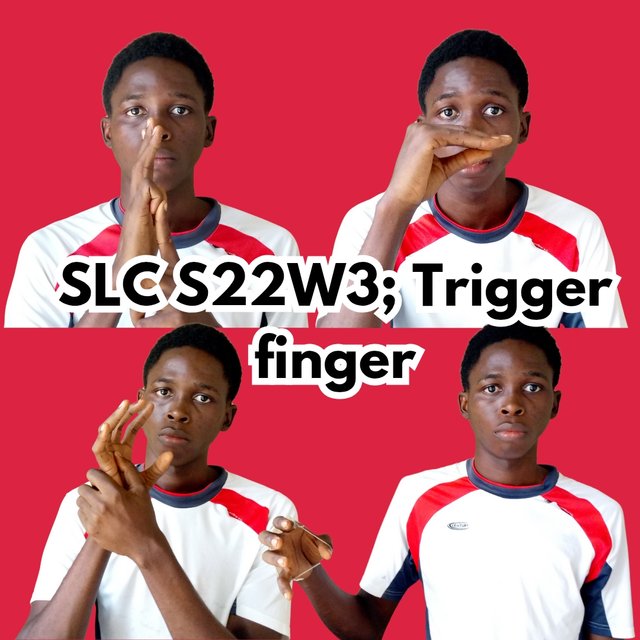
In combining these two, we can simply say that Stenosing tenosynovitis, or trigger finger, is that condition or syndrome that could be addressed as an inflammation or narrowing of the tendon sheath of the finger, making the finger uneasy to bend.
You will feel a clicking sensation like that of pulling a trigger.
CAUSES OF TRIGGER FINGER |
|---|
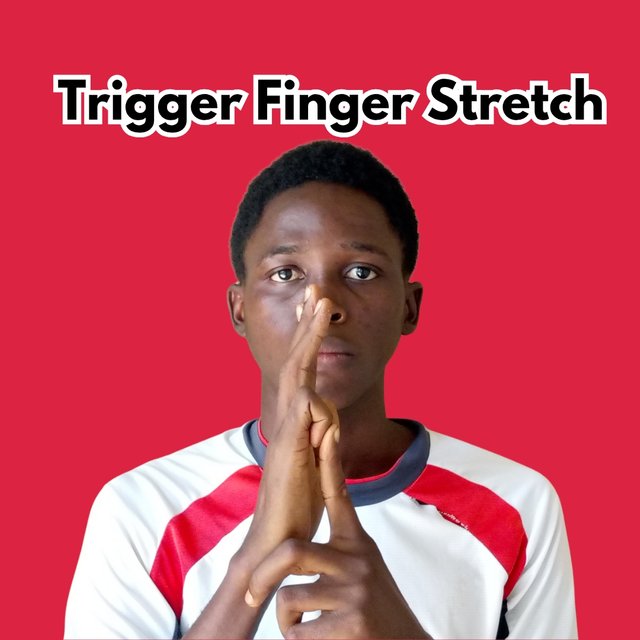
Diabetes, which leads to fluid retention in the finger and also a reaction of sugar molecules with proteins found in the tendons, can lead to trigger finger.
Rheumatoid arthritis: Whenever the lining of the joints is attacked, that is joint deformity; it leads to swelling of the finger, which, by diagnosis and performing some tests, we may know how to handle.
Holding firm an object or anything for a very long
Whenever there is an inflammation of the tendon sheath, as earlier stated, trigger finger is likely to be diagnosed.
SYMPTOMS |
|---|
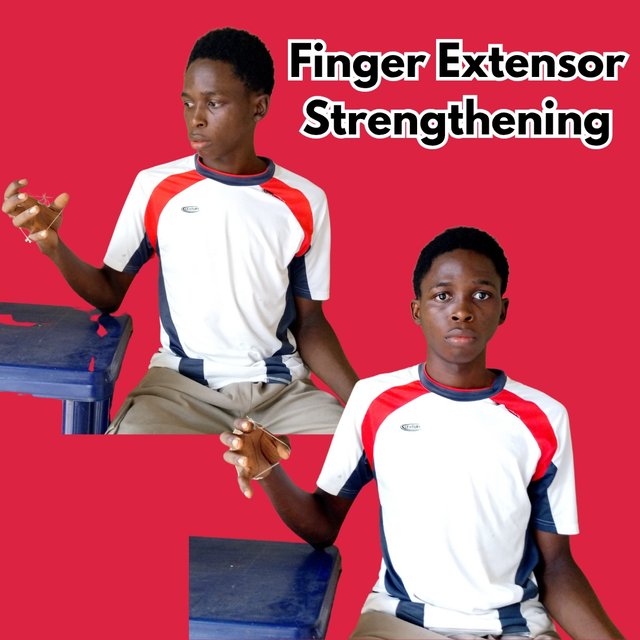
It is through the feelings we encounter in the affected area that we can ascertain if it is trigger finger, and by knowing them depending on the cause of this symptom, we can ascertain if it is trigger finger.
- Pain in the finger
- Stiffness of the finger when trying to bend
- A swollen finger
- A snapping sensation like a trigger snapping, etc.
STAGES OF TRIGGER FINGER |
|---|
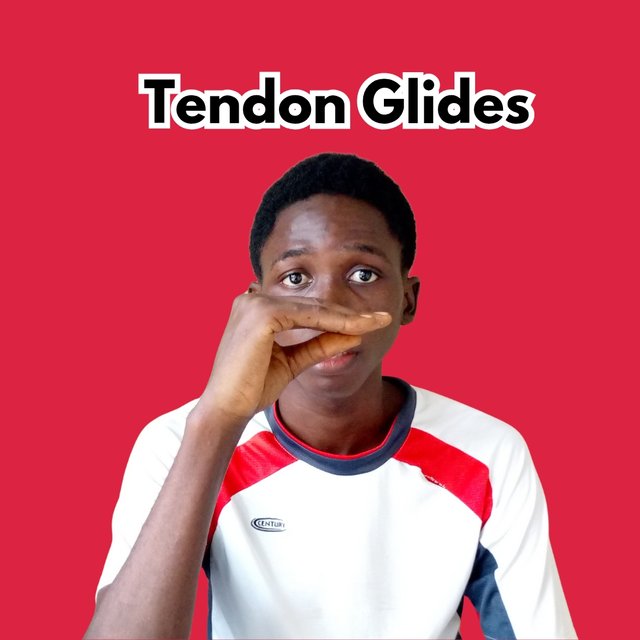
There are three main stages arranged in their order of severity.
The first stage is always minimal as the finger will always become stiff when not used for other activities
The Second stage has the finger move with a snapping feeling, or sometime the finger may move and stop half way.
- The last stage is where the finger locks completely as you know normally our finger as always bent even while sleeping, so this is what happens, the finger becomes bent and cannot straighten.
DIAGNOSIS |
|---|
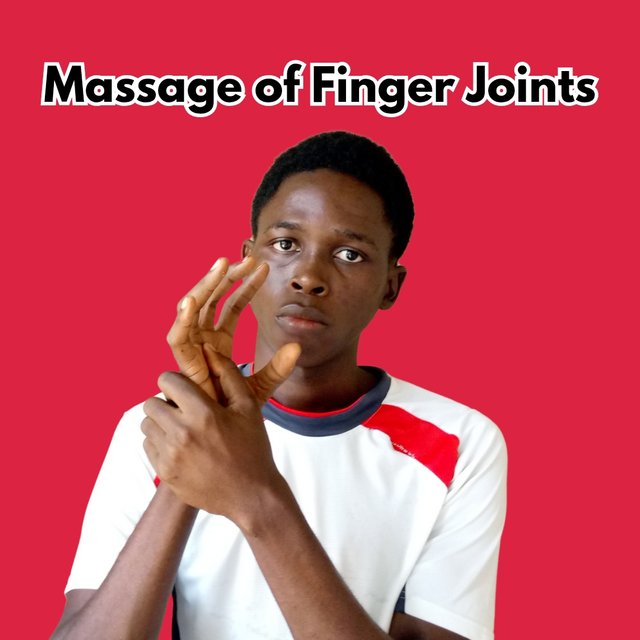
The first thing that is mostly done is checking the patient medical history this is very important in knowing if the cause of the trigger Finger was from an accident or if there is a known case of diabetes that may lead to this condition.
Physical examination of the patient to see if the finger can move to certain point is done, you can assume how the examination is done by the way we did finger stretches.
Imaging Test could be optional here because I don't think this will lead to severe of other part of the body or hinder your ability to complete most taskes like it will for plantar fasciitis or cervical Radiculopathy. But if necessary and xray can be conducted to pinpoint the main area affected.
SPECIAL TEST |
|---|
Though special tests are numerous, since this affects the tendon, we can perform tendon sheath compression to determine where there is a snapping sensation.
PHYSIOTHERAPIC EXERCISE PERFORMED |
|---|
FINGER EXTENSOR STRENGTHENING
TENDONS GLIDES
TRIGGER FINGER STRETCH
MASSAGE OF FINGER JOINTS
MY FEELING/REVIEW |
|---|
Trigger finger will make our finger heavy and with a swollen finger since I have experienced this before without knowing most of this exercise, then I manipulated my fingers this way. Most times I try to grip an object, no matter the severity, I notice that when I tried to do this, the pain seems to increase, and it leads to the flexibility of the swollen finger. Bit by bit it becomes free and then becomes stiff again, but on continuous application, there is relief. Now that I am performing this without any pain, I feel some clicking when the fingers are bent; I assume this is making it more flexible.
I would love to invite @alli001 @kidi40 and @whizzbro4eva to join this contest
Thank you for understanding the lesson and sharing your assignment; I hope that you will enjoy this week's lesson and try to implement it in your life if you see any such case.
Observations
Task 1 (2.9/3)
You have shared a great knowledge about trigger finger, its symptoms, causes and it's stages. But it would be better to add the name of stages written in the lesson post. I appreciate your effort.
Task 2 (2.4/3)
In the second question, you tell us about how you have to assess a patient by doing physical examination, history taking, special tests and investigations. It would be better to add explanation of other special tests and investigations too. Good.
Task 3 (3.9/4)
You try the trigger finger stretch, finger joint massage, tendon glides, and finger extensor strengthening. You did the finger joint massage stretches, tendon glides, finger extensor strengthening and trigger finger stretch correctly. A little direct hold the position for 5 to 10 seconds in stretching. Always remember to apply heat pack in chronic condition and ice pack in acute condition before performing exercises to relax the muscles and reduce stiffness. I appreciate your efforts.
Overall you made a great attempt to answer all the questions. I appreciate your efforts. But next time try to avoid the above written suggestions. Keep learning and try to implement your knowledge to the people suffering from trigger finger or any type of finger issue. Thank you.
x promotion link
https://x.com/nsijoro/status/1877119701945291260